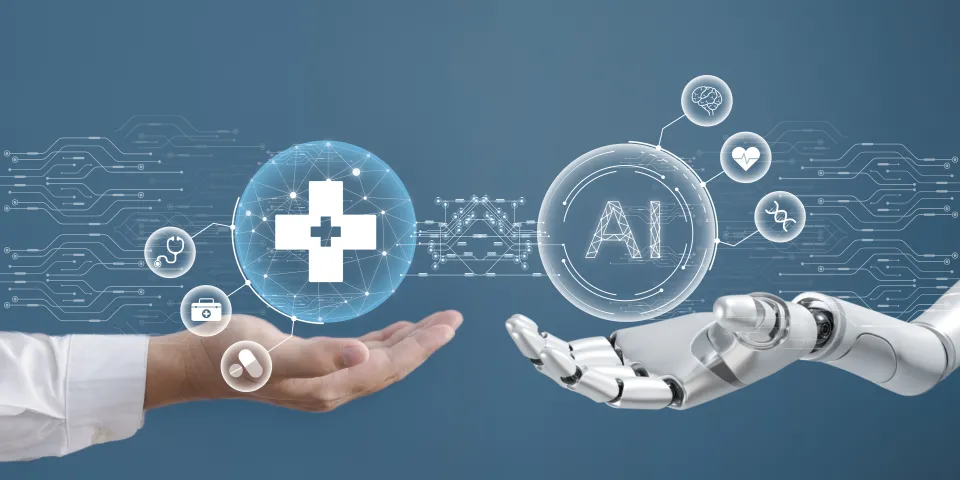Latest 
 Career Development Denise Alexander
Career Development Denise Alexander
Recent Blog Posts


If you're studying medical billing and coding or recently graduated from a program, you've probably heard the whispers: "Will AI replace medical billers and coders?" The short answer is no, but that doesn't mean artificial intelligence isn't having a dramatic impact on your field. Instead of making your skills obsolete, AI is creating new opportunities and transforming how you'll work in ways that could make your career more rewarding and efficient than ever before.
The fear that AI will completely replace human professionals in medical billing and coding is largely unfounded. Research shows that while AI is increasingly capable of accelerating and improving the accuracy of medical coding and billing, it's unlikely to replace human professionals in the future. What's emerging instead is a hybrid model where AI handles routine tasks while professionals oversee complex scenarios that require human judgment.
Think of it this way: AI can code in seconds what might take a human several minutes, but it still struggles with nuanced cases, contextual understanding and regulatory complexity. Industry experts note that these limitations mean human review remains critical, especially when dealing with inaccuracy issues and cases that lack proper clinical context.
The most exciting aspect of AI integration isn't what it's replacing—it's what it's making possible. Current implementations show that artificial intelligence excels at streamlining repetitive coding tasks and summarizing large medical records that might span hundreds of pages into actionable insights.
This means you'll spend less time on routine data entry and more time on the work that truly requires your expertise: interpreting exceptional cases, ensuring compliance and making the complex decisions that require human insight. AI becomes your assistant, handling the time-consuming groundwork so you can focus on higher-value tasks that showcase your professional skills.
Rather than becoming obsolete, your role is evolving into something more strategic and impactful. Industry analysis suggests that as AI takes over data extraction and basic code application, medical coders need to embrace soft skills like communication and leadership that will distinguish them from automated systems.
Your career path might lead you to become an AI supervisor, exception manager or compliance specialist—roles that didn't exist before but are becoming mandatory as healthcare organizations adopt these new technologies. Experts recommend positioning yourself to enhance AI's impact rather than compete with it, which opens doors to more advanced and better-compensated positions.
The healthcare industry has always been about adaptation and continuous learning, and the AI era is no different. Broader healthcare trends show that artificial intelligence is transforming everything from diagnostic imaging to personalized medicine, reinforcing that AI complements rather than replaces human practitioners across all healthcare fields.
For billing and coding professionals, this means developing tech skills alongside your clinical knowledge. Understanding AI's capabilities and limitations positions you to work effectively alongside these systems, making you an invaluable bridge between technology and healthcare delivery.
The Bureau of Labor Statistics projects 9% growth in medical coding careers, and educational programs are already adapting their coursework to prepare students for this AI-enhanced landscape. While some automation exists, the emphasis remains on developing the human judgment skills that technology cannot replicate.
The future of medical billing and coding isn't about humans versus machines—it's about humans with machines. Your coding accuracy will improve with AI assistance. Your workflow will become more streamlined. Your time will be spent on more engaging, higher-level work. And your career opportunities will expand as healthcare organizations need professionals who can navigate both the clinical and technological sides of medical billing and coding.
The question isn't whether AI will change your field—it already is. The question is whether you're ready to embrace these changes and position yourself at the forefront of a more efficient, more accurate and ultimately more rewarding career in medical billing and coding.
BLS pay estimates calculate the median annual wage for various occupations. Per the BLS the median wage for an occupation is: "The wage at which half of the workers in the occupation earned more than that amount, and half earned less. Median wage data are from the BLS Occupational Employment and Wage Statistics survey." Bureau of Labor Statistics (BLS), U.S. Department of Labor, Occupational Outlook Handbook 2024. BLS median wage estimates do not represent entry-level wages and/or salaries. Multiple factors, including prior experience, age, geographic market in which you want to work, and degree level and field, will affect career outcomes, including starting salary and earnings as an experienced employee. Herzing neither represents that its graduates will earn the median salaries calculated by BLS for a particular job nor guarantees that graduation from its program will result in a job, promotion, particular wage or salary, or other career growth.
Get the latest news you need to know, from study hacks to interview tips to career advancement. Have it delivered right to your inbox biweekly.